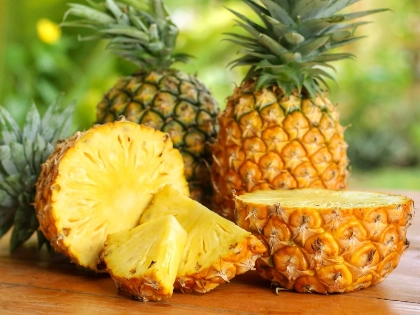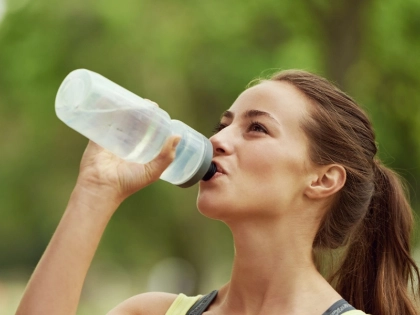Pineapple and Muscle Recuperation: Enhancing Athletic Achievement
Pineapples are low in calories and high in protein, carbohydrates, and vitamins. Additionally, they have an enzyme called bromelain, which has been shown to lower inflammation and could aid in the healing of muscles after exercise. Pineapples include vitamin C, which helps to lessen the discomfort and inflammation that come with prolonged, high-intensity training. They are also an excellent source of manganese, which is necessary for strong muscles and healthy bones.
Glucose
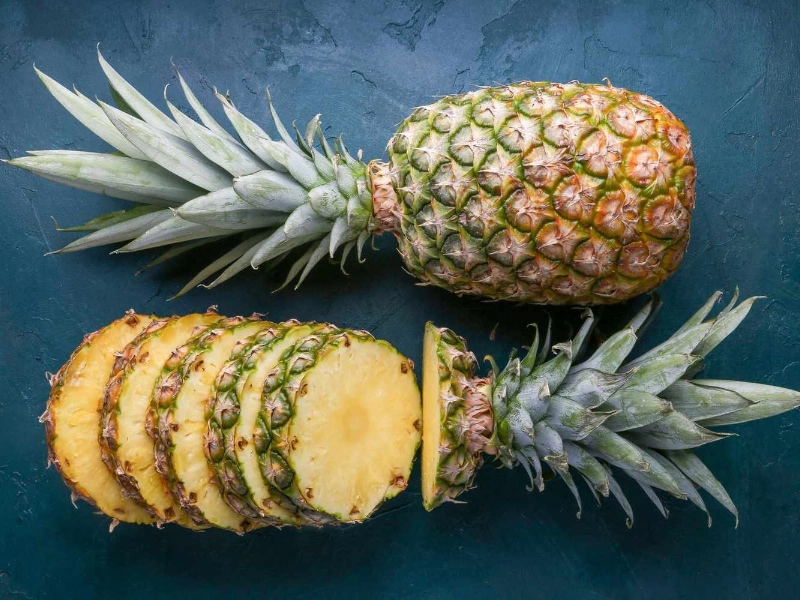
Vitamin C
 Pineapple has a high dietary fiber content and is low in calories and fat. It provides a sufficient amount of vitamin C, which the immune system needs to function properly. A single cup of pineapple packs a powerful punch of B vitamins, including thiamin, niacin, vitamin B6, and folate, and provides roughly 10% of your daily fiber needs.
A January 2012 study in the journal "Archives of Internal Medicine" revealed that vitamin C-rich diets reduce the risk of cancer, heart disease, stroke, and inflammatory illnesses like osteoarthritis and rheumatoid arthritis. Pineapple's vitamin C content aids in the synthesis of sirtuins, which lessen inflammation and aid in your body's post-exercise recovery.
Bromelain and vitamin C from pineapples have anti-inflammatory qualities that help relieve bronchitis, sinusitis, and other respiratory issues. Additionally, it thins accumulated mucus in the throat, which helps lessen allergy and common cold symptoms.
Pineapple has a high dietary fiber content and is low in calories and fat. It provides a sufficient amount of vitamin C, which the immune system needs to function properly. A single cup of pineapple packs a powerful punch of B vitamins, including thiamin, niacin, vitamin B6, and folate, and provides roughly 10% of your daily fiber needs.
A January 2012 study in the journal "Archives of Internal Medicine" revealed that vitamin C-rich diets reduce the risk of cancer, heart disease, stroke, and inflammatory illnesses like osteoarthritis and rheumatoid arthritis. Pineapple's vitamin C content aids in the synthesis of sirtuins, which lessen inflammation and aid in your body's post-exercise recovery.
Bromelain and vitamin C from pineapples have anti-inflammatory qualities that help relieve bronchitis, sinusitis, and other respiratory issues. Additionally, it thins accumulated mucus in the throat, which helps lessen allergy and common cold symptoms.
Bromelain
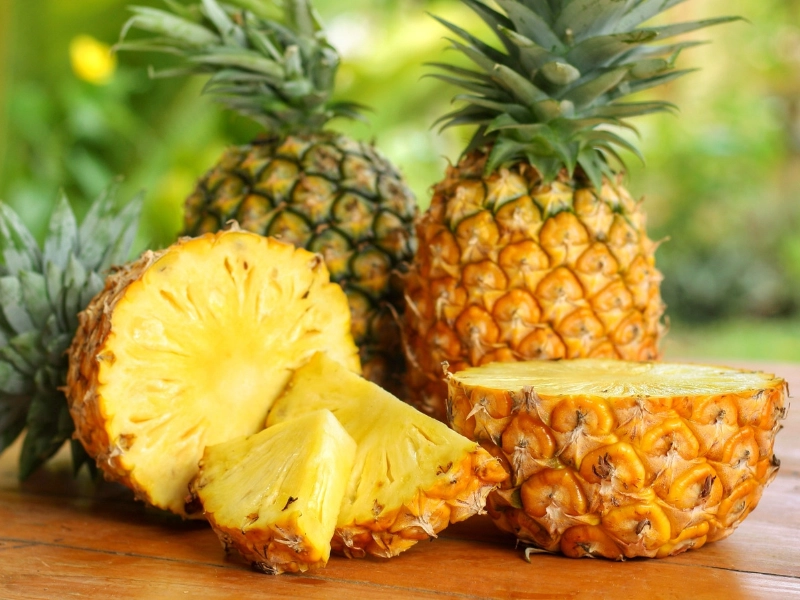 A proteolytic enzyme found in pineapple fruit and stem is called bromelain. It is commonly used as an over-the-counter dietary supplement to eliminate dead skin following severe burns or to lessen pain and inflammation in the nose, sinuses, gums, and gastrointestinal tract. It is nontoxic and has been demonstrated to be more effective than other anti-inflammatory drugs.
Apart from its ability to digest proteins, bromelain has also been demonstrated to prevent the synthesis of inflammatory enzymes and prostaglandins, which promote inflammation. Although inflammation is a normal bodily reaction that can aid in the battle against disease, too much inflammation can result in chronic conditions like rheumatoid arthritis. Bromelain's and vitamin C's anti-inflammatory properties can work synergistically to promote a healthy muscle repair process following exercise. Additionally, by increasing the body's production of white blood cells to combat infections, vitamin C can support healthy immunological function. Antioxidants such as vitamin C can lessen the oxidative damage caused by vigorous exercise and stop weariness after a workout.
A proteolytic enzyme found in pineapple fruit and stem is called bromelain. It is commonly used as an over-the-counter dietary supplement to eliminate dead skin following severe burns or to lessen pain and inflammation in the nose, sinuses, gums, and gastrointestinal tract. It is nontoxic and has been demonstrated to be more effective than other anti-inflammatory drugs.
Apart from its ability to digest proteins, bromelain has also been demonstrated to prevent the synthesis of inflammatory enzymes and prostaglandins, which promote inflammation. Although inflammation is a normal bodily reaction that can aid in the battle against disease, too much inflammation can result in chronic conditions like rheumatoid arthritis. Bromelain's and vitamin C's anti-inflammatory properties can work synergistically to promote a healthy muscle repair process following exercise. Additionally, by increasing the body's production of white blood cells to combat infections, vitamin C can support healthy immunological function. Antioxidants such as vitamin C can lessen the oxidative damage caused by vigorous exercise and stop weariness after a workout.
Ingredients
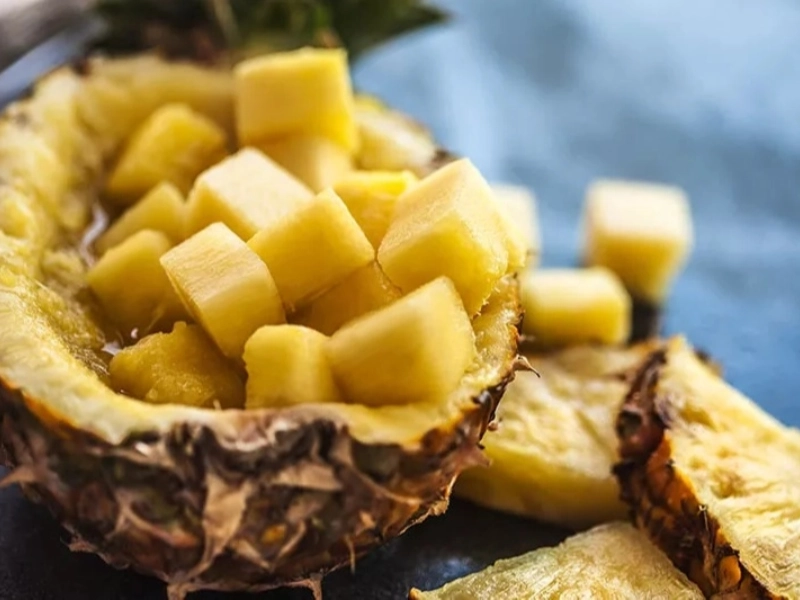 Adequate nutrition and a regular workout regimen are essential for growing muscle mass. The abundance of vitamins and minerals found in pineapples (Ananas comosus) can aid in muscle growth and recuperation. One pineapple serving gives you one-third of your recommended daily dose of vitamin C, which supports the growth and repair of tissue. Additionally, it has manganese, a trace mineral that improves metabolism, immunological function, and bone production.
As a protease, the enzyme bromelain is present in pineapple and breaks down protein molecules to facilitate easier absorption by the body. This could lessen the inflammation that follows a strenuous exercise session and cause pain.
For a delicious and reviving post-workout drink, add canned or fresh pineapple to a smoothie. Try adding diced pineapple to a salad or to trail mix along with nuts, seeds, and dried fruit. Pineapple can also be grilled and served as a snack. Pineapple's antioxidants can shield your body from oxidative stress, which is linked to diabetes, heart disease, and some types of cancer.
Adequate nutrition and a regular workout regimen are essential for growing muscle mass. The abundance of vitamins and minerals found in pineapples (Ananas comosus) can aid in muscle growth and recuperation. One pineapple serving gives you one-third of your recommended daily dose of vitamin C, which supports the growth and repair of tissue. Additionally, it has manganese, a trace mineral that improves metabolism, immunological function, and bone production.
As a protease, the enzyme bromelain is present in pineapple and breaks down protein molecules to facilitate easier absorption by the body. This could lessen the inflammation that follows a strenuous exercise session and cause pain.
For a delicious and reviving post-workout drink, add canned or fresh pineapple to a smoothie. Try adding diced pineapple to a salad or to trail mix along with nuts, seeds, and dried fruit. Pineapple can also be grilled and served as a snack. Pineapple's antioxidants can shield your body from oxidative stress, which is linked to diabetes, heart disease, and some types of cancer.






